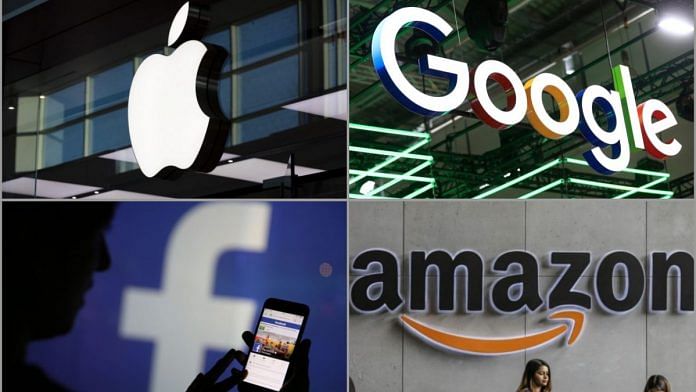Few issues have generated more misguided legislation in this Congress than antitrust reform. The latest addition to this regrettable canon shows exactly what’s at stake.
This month, Senators Amy Klobuchar (of Minnesota) and Tom Cotton (of Arkansas) introduced the Platform Competition and Opportunity Act of 2021. It’s a companion bill to one that was introduced in the House — along with four likeminded proposals — in June, and its goal is relatively simple: It would effectively ban big tech companies from making acquisitions, on the theory that this would stimulate competition and better serve consumers.
That theory, offered as though it were self-evident, is in fact dubious. Mergers and acquisitions are typically a spur to efficiency, not a barrier, because they allow companies to create synergies, boost productivity, diversify risk, and gain economies of scale or scope. In the American tech business, these benefits are especially pronounced. Acquisitions allow platforms to instantly bring new products to a huge market. They reward investors for taking a chance on promising startups. They encourage entrepreneurship, innovation and the tolerance for failure that has made the U.S. venture-capital market so strikingly successful.
By banning mergers, the bill could destroy this ecosystem. Perversely, it would actually make it harder for new entrants to disrupt existing markets. By placing the burden of proof in merger reviews on companies rather than the government, it would shift the balance of power away from the courts and toward politically appointed bureaucrats. Its very purpose is to dethrone the consumer-welfare standard that has guided U.S. antitrust policy for decades — and has helped make America’s tech sector the envy of the world.
The digital economy now makes up 9.6% of U.S. gross domestic product, almost as much as manufacturing. It employs nearly 8 million Americans, produces an enormous variety of desirable products, and often gives them away for free. If this is an industry in need of a radical intervention, what do these lawmakers imagine would constitute success?
The senators say they’re addressing “our nation’s monopoly problem,” but they offer no evidence that the targeted businesses are in fact monopolies. There’s a good reason for that. The companies in the crosshairs — Amazon.com, Apple, Google and Facebook — might be big, but by any traditional metric they’re are engaged in fiercely competitive markets.
Notice that the bill’s new strictures would apply only to companies with net annual sales or market capitalizations exceeding $600 billion — “as of the date of enactment.” That would ensnare the likes of Amazon and Facebook, but any incumbent currently below that threshold would be free to strive for greater market power. Coincidentally, two of those would-be rivals are Target (of Minnesota) and Walmart (of Arkansas).
Setting aside the suspicion of home-state cronyism, this design is revealing. It effectively concedes that Amazon is not an unassailable monopoly and that the e-commerce market is in fact intensely competitive. Reality concurs: Both retailers are growing faster than Amazon in e-commerce, all three are engaged in a fierce pricing war, and the benefits — cheaper goods, faster delivery, greater variety — accrue to everyone. Amazon has a market share of about 40% in e-commerce and less than 7% in overall retail, not close to a monopoly by any standard.
If legislators feel that tech mergers demand added scrutiny, they should provide more resources to the Department of Justice and the Federal Trade Commission for that purpose. If they object to specific business practices among tech firms, they should outlaw them. What they should not do is harness antitrust enforcement to vague and unrelated objectives, while recklessly destabilizing one of the country’s most successful industries.-Bloomberg
Also read: Google loses appeal against €2.4 billion fine. Tech giants must rethink their business models



